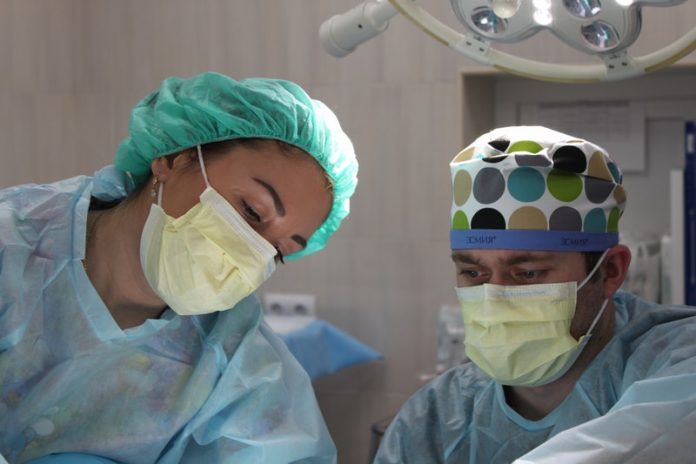
In a new study from Michigan Medicine, researchers found that surgeons can ease their patients’ pain from common operations without prescribing opioids, and avoid the possibility of starting someone on a path to long-term use
They found treating post-surgery pain with non-opioid pain medications such as ibuprofen or acetaminophen didn’t lead to higher pain levels or more serious issues during recovery and didn’t dampen patients’ satisfaction with their care,
In the study, the team examined more than 22,000 patients who had one of seven common operations at 70 hospitals.
They analyzed 2019 data from a Michigan-wide surgical care registry, and surveyed patients about their experience after they’d had a chance to recover.
The vast majority – 86% — of the patients received a prescription for an opioid after they had hernia, gallbladder, appendix, bowel, thyroid or gynecological operations.
But when the researchers compared those patients’ experiences and survey responses with data from the 14% of patients who only got non-opioid painkiller prescriptions, they found little difference.
In all, an equal percentage — 12% — of both groups of patients had a major adverse event within 30 days of their initial operation.
Specifically, there was no difference in complications, emergency department visits, or reoperations between groups.
Patients not prescribed opioids were slightly more likely to be readmitted to the hospital, but rarely due to pain-related issues.
There was also no difference in the percentage who sought emergency care for pain.
The survey, carried out one month to three months after their operation, asked patients about their pain in the first seven days after they left the hospital, their satisfaction with their care, their quality of life and their level of regret about having surgery.
In all, 82% of both groups – patients who got an opioid prescription, and those who did not – said they were highly satisfied with their care. An even higher, but still equal, percentage of both groups (93%) said they had no regret about their surgery.
Those who didn’t receive opioid prescriptions were actually more likely to report no pain in the first week after surgery than those who did (12% vs 7%).
The non-opioid patients were also slightly more likely to say they had the best possible quality of life after surgery (66% vs 63%).
The team says opioids have been a routine part of post-surgical pain care for decades, but the risk that they could lead to persistent use has been clearly documented.
Perhaps it’s time to make them the exception, not the rule.
The team also notes that 16% of the patients in the study were taking opioids on an ongoing basis before they had their operations. Long-term opioid use is known to increase risks from surgery.
If you care about opioids and pain, please read studies about more than half of Americans may receive inappropriate opioid treatments and findings of misuse of opioids may change the brain permanently.
For more information about pain management, please see recent studies about you should get less opioids from your dentist and results showing a new cause of negative side effects in opioid painkiller use.
The study is published in the Annals of Surgery. One author of the study is Ryan Howard, M.D.
Copyright © 2021 Knowridge Science Report. All rights reserved.



